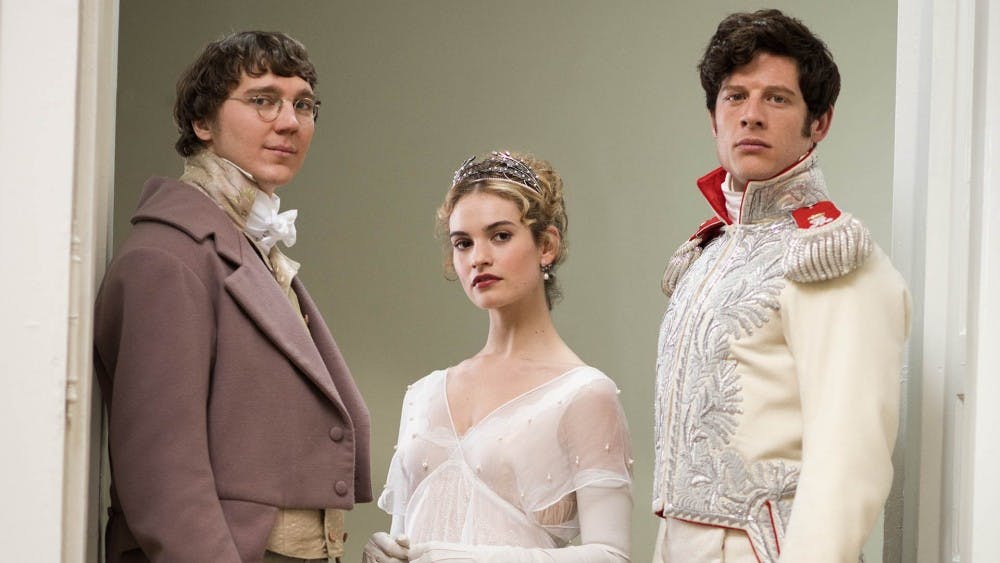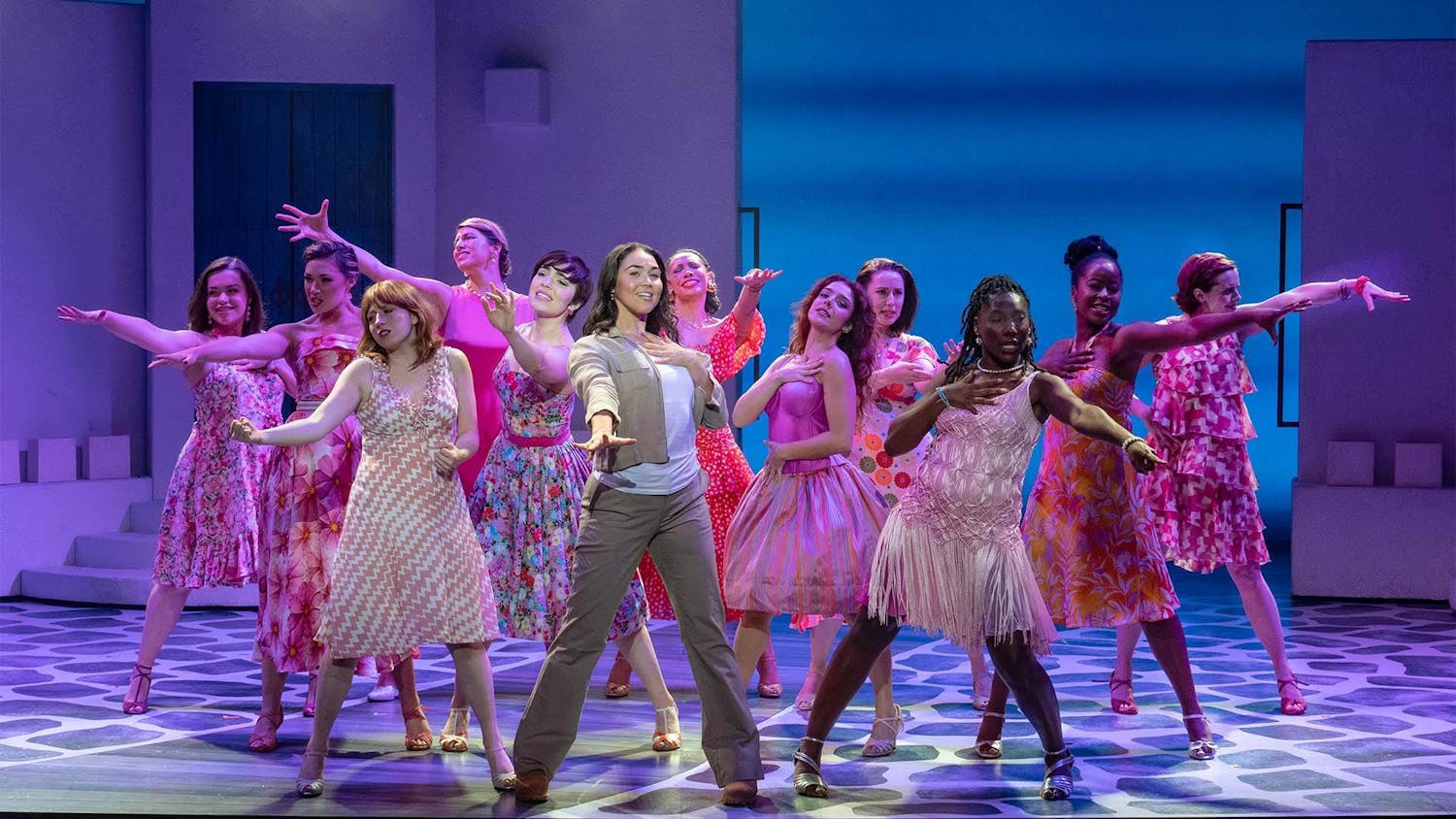Is a 147-year-old, 1,300-page Russian novel capable of being successfully translated into a four-part TV miniseries? This sounds like a daunting task, however BBC decided to take the chance and interpret the epic work of Leo Tolstoy’s “War & Peace” through the TV medium. The end result proves that their gamble was our gain.
BBC clearly understands that the key to a critically acclaimed, classic piece of writing is to invest. The epic scale of production is so impressive that even “Game of Thrones” fans may raise their brows. The costumes electrify the screen amid the backdrop of combat and despair. Scenes are shot on location within true architectural treasures of the world. The elegant camerawork is proportionate to the story’s grandeur. The hauntingly low Russian vocals in the score resonate beautifully in the background amid the self-destruction of the characters, amplifying the perspective and scope of this Tolstoyan drama.
The series opens in 1805 St. Petersburg, Russia, when fears of Napoleon’s French invasion are underway. The chronicle is notably more of a character-driven drama than a simple war story. Tolstoy is famous for his large number of characters, and this carries through to the BBC interpretation. Each character has symbolic undertones and intricate layers that the actors wonderfully bring to life.
The gut-wrenching love triangle between characters Natasha, Andrei and Pierre is proven to be the heart of the series. Natasha (Lily James) symbolizes purity with an always-optimistic outlook on life. Andrei (James Norton) embodies war with a torturous death complex. And Pierre (Paul Dano) is peace, an existentialist constantly seeking pacifism. The acting is at times subtly delicate, and other times brutally severe. For instance, while Andrei is writing a faux-heartfelt letter to his sister, father and pregnant wife, he grimaces to himself, “I would give it all up for a chance at glory.” Yet, once he falls for Natasha, the happiness spreads through him. Love transforms Andrei into a different man than he once was. Natasha is a beacon of purity, hope and naivety shining in a desolate expanse of a bleak future tainted by war. There is a scene in which Natasha and Andrei dance at the immaculate Catherine Palace for the Tsar’s Ball. While watching this exquisite montage, it is easy to feel like you are there with them, swept up in the moment. When Pierre advises Andrei to marry Natasha, the pain, envy and love is evident in Pierre’s eyes.
As the story progresses, and the French invade into Russian society, it is apparent that the story has reached its climax. The ending of part three is abrupt and unresolved, invoking the idea of war itself. For the characters of the show, war is a means to an end. No social barrier, relationship conflict or love tryst will be neatly wrapped up by the time you face the enemy on the front line. War waits for nothing and no one because, at that time, it is bigger than any individual. It is to fight and defend your identity to the last dying breath, even if you have no chance to come out alive. Honoring your name and origin is, for characters like Andrei, a priority above all else. With only one part of the miniseries left, what is unsaid and unresolved feels shocking and disparaging. It leaves a powerful lasting impression as the heavy narrative’s splendor and intricacy come crashing to an abrupt halt. However, each episode covers so much ground that the story manages to find resolution by the finale.
The finale presents a touching ending to the impressive story. Every character that is backed into a corner, every mistake that seems undoable and every ambition that seems to be crushed is masterfully untangled and pieced back together so much so that it feels not only right, but inevitable in retrospect.
It is possible that the miniseries does not interpret the novel in a way that is fully satisfactory to true purists of the written story. However, as a simpleton who has not yet read the original, I truly enjoy the TV depiction. The rich and compelling narrative is filled with metaphor and deep thought. It almost motivated me to crack open and leaf through the dense text. Throughout this elaborate tale, the prominent theme that remains is: Amid war, there is beauty.
A previous version of this article noted the character Pierre in the fourth to last sentence of paragraph five. However, the actual character noted in the statement is Andrei. We regret this error.






